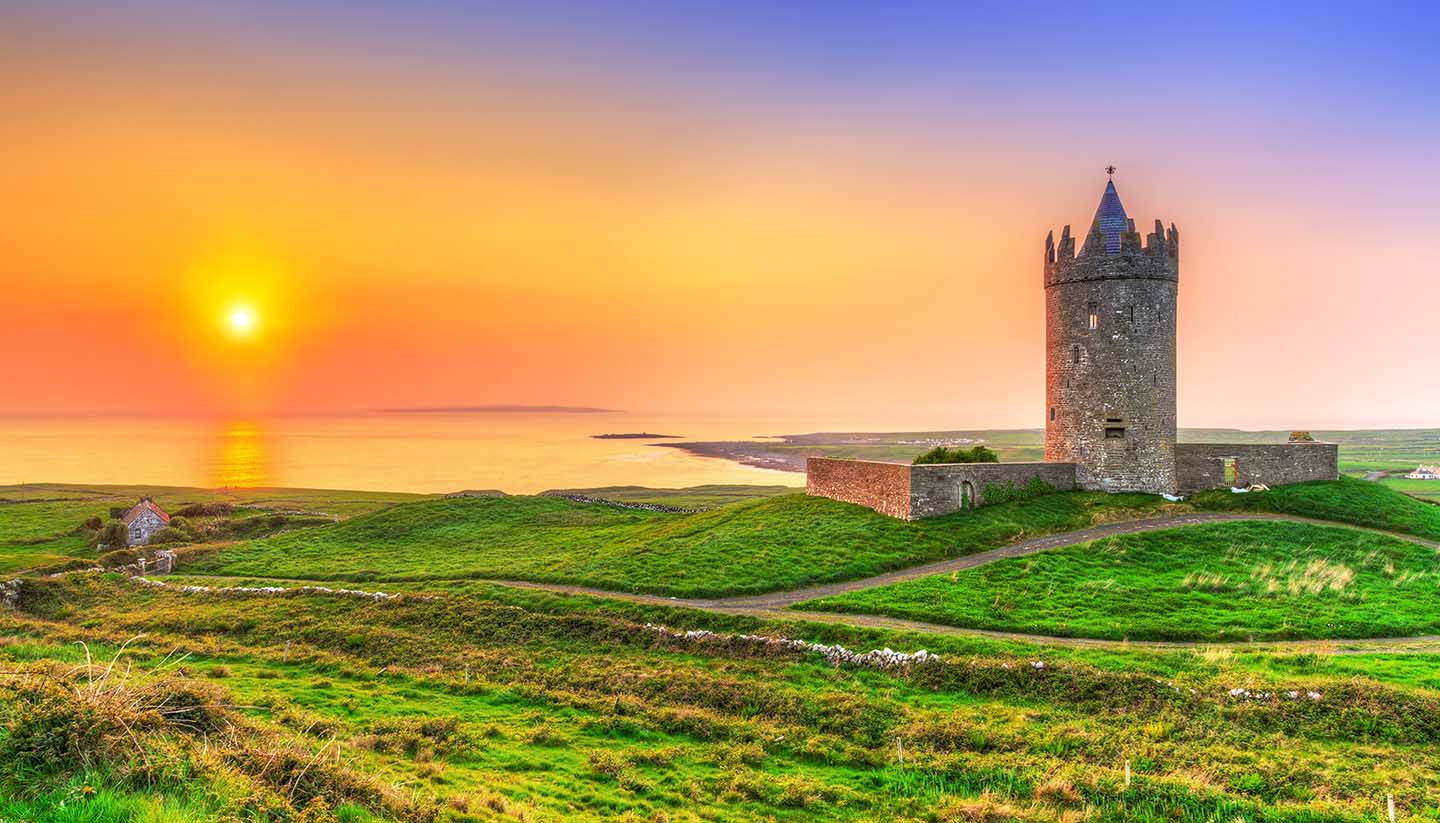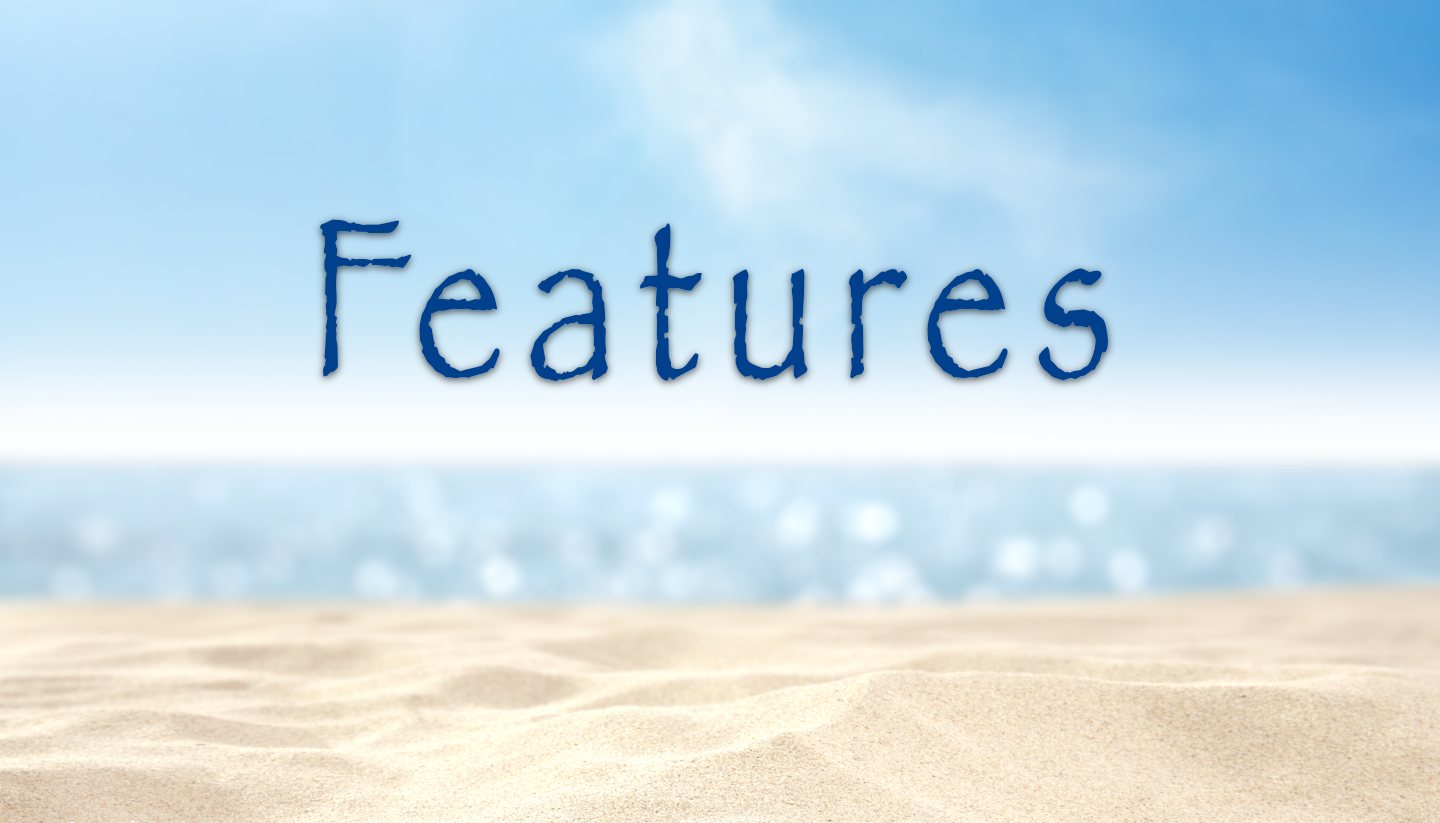Getting Around Ireland
Air
Aer Arran (www.aerarann.com) and Aer Lingus (www.aerlingus.com) run domestic routes. Given the size of the country however, internal flights are rarely essential.
Road
Ireland has a comprehensive road network. Getting from A to B by road might look relatively straightforward, but it’s always advisable to have a detailed road map or, better still, sat nav. Be aware that many signposts list place names in both Irish and English.
Side of the road
LeftRoad Quality
Main roads are of a high quality. Minor roads can vary in standard, with some remote stretches being potholed.
Road Classification
In descending order of importance: Motorways (M followed by route number); National Primary and National Secondary routes (both N followed by route number); Regional Roads (R followed by route number); and Local Roads (L followed by route number).
Car Hire
Car hire is available from all airports and seaports, as well as major hotels. All international hire companies are represented in Ireland, as well as local operators. Drivers must be 21 or over. A full licence from the driver's home country is required, and the driver is normally required to have had at least two years' experience.
It is advisable to book hire cars in advance, especially in the peak season, and a child seat should be ordered in advance also. Advise the car hire company if you're planning to drive the car into Northern Ireland.
Taxi
Service is available in all cities and towns and at hotels, rail and bus stations and taxi stands. You can find metered taxis in Dublin, Cork, Galway and Limerick, but elsewhere may have to agree on a fare beforehand.
Bike
Ireland is generally bike-friendly and can make for a superb touring destination. You can hire bikes in most cities, and many towns, with ease.
Coach
Bus Eireann (tel: 1850 836 611, in Ireland only; www.buseireann.ie) has a comprehensive network of routes across the country.
Regulations
Speed limits are 50kph (30mph) in towns and cities, 80-100kph (50-62mph) on non-urban roads and 120kph (75mph) on motorways. Seat belts should be worn at all times.
Breakdown services
AA Ireland (+353 1 617 9950; www.aaireland.ie).
Documentation
EU nationals taking cars into the Republic of Ireland should have registration documents with them as proof of ownership.
Urban travel
Most major cities have decent, well-priced public transport networks. The emphasis is usually on buses or suburban rail. Dublin also has its own tram system.
Rail
Rail services in Ireland are run by Iarnród Eireann (Irish Rail) (tel: 1850 366 222, in Ireland only or +353 1 836 6222; www.irishrail.ie) and express trains run between the main cities. There are two classes of accommodation, with restaurant and buffet cars on some trains. Discounts are available for families, students and schoolchildren.
RailNote
Ireland’s rail network is great for travellers heading to other parts of the country from Dublin, but can be limited in other respects. There’s no north-south route on the west coast, for example.
Rail Passes
InterRail One-Country Pass: offers travel for three, four, six or eight days in one month within Ireland. Travel is not allowed in the passenger's country of residence. Travellers under 26 years receive a reduction. Children under 12 travel free when accompanied by an adult using an Adult Pass. Supplements are required for some high-speed services, seat reservations and couchettes. Available from Voyages-sncf.com (tel: +44 844 848 5848, in the UK; www.voyages-sncf.com).
Eurail Ireland Pass: offers travel for three, four, five or eight days in one month within Ireland. Available to non-EU nationals from Eurail (www.eurail.com).
Water
Ferry services run to the Aran Islands with Aran Island Ferries (www.aranislandferries.com).
Water note
It's possible to visit some of the other outlying islands, such as the Skellig Islands and Saltee Islands, on pleasure-boat or charter trips.





